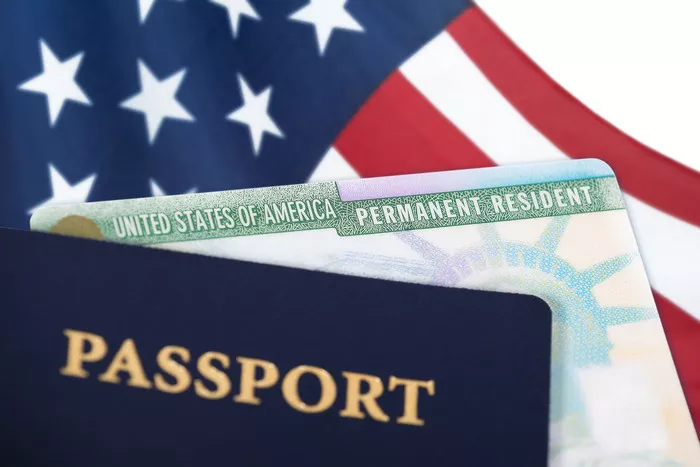A Green Card, also known as a Permanent Resident Card, allows an individual to live and work permanently in the United States. While it grants significant rights and privileges, it is essential to understand that a Green Card does not make its holder a U.S. citizen. Consequently, a Green Card holder is not eligible for a U.S. passport. Instead, Green Card holders must use the passport issued by their country of citizenship for international travel.
The Difference Between a Green Card and U.S. Citizenship
1. Green Card Benefits and Limitations
A Green Card provides various benefits, including:
Permanent Residency: You can live permanently in the U.S.
Employment Rights: You can work in most jobs across the U.S.
Social Security Benefits: You may be eligible for certain social benefits after paying into the system.
However, there are limitations:
Travel Restrictions: Extended trips outside the U.S. can jeopardize your residency status.
No Voting Rights: Green Card holders cannot vote in federal elections.
Deportation Risk: Certain criminal activities can lead to deportation.
2. Pathway to U.S. Citizenship
U.S. citizenship offers additional benefits beyond those of a Green Card, such as:
U.S. Passport: Citizens can obtain a U.S. passport, facilitating international travel.
Voting Rights: Citizens can vote in federal, state, and local elections.
Extended Stay Protection: Citizens can stay outside the U.S. indefinitely without risking their status.
Family Sponsorship: Easier ability to sponsor family members for immigration.
Traveling Internationally with a Green Card
1. Using Your Home Country Passport
Green Card holders must use their home country passport for international travel. It is crucial to ensure that this passport is valid for the duration of the trip, including the re-entry date to the U.S. Additionally, travelers must carry their Green Card to re-enter the United States.
2. Re-Entry Permit
For Green Card holders planning to stay outside the U.S. for an extended period, obtaining a Re-Entry Permit is advisable. This permit allows re-entry into the U.S. after an absence of up to two years, helping to maintain residency status.
3. Important Considerations
Carry Both Documents: Always carry both your Green Card and your home country passport when traveling internationally.
Check Visa Requirements: Ensure you have the necessary visas for the countries you plan to visit.
Notify U.S. Authorities: Inform U.S. immigration authorities of any prolonged absence from the country.
The Process of Obtaining U.S. Citizenship
1. Eligibility Requirements
To become a U.S. citizen, a Green Card holder must meet specific eligibility requirements, including:
Residency Duration: Generally, you must have been a permanent resident for at least five years (three years if married to a U.S. citizen).
Continuous Residence: You must have lived continuously in the U.S. for at least half of the required residency period.
Physical Presence: You must have been physically present in the U.S. for at least 30 months out of the five years (18 months out of three years if married to a U.S. citizen).
Good Moral Character: Demonstrate good moral character, which includes a clean criminal record.
English and Civics Knowledge: Pass an English language and U.S. civics test.
2. Application Process
The process to apply for U.S. citizenship involves several steps:
Form N-400: Complete and submit Form N-400, Application for Naturalization.
Biometrics Appointment: Attend a biometrics appointment to provide fingerprints, photos, and a signature.
Interview and Exam: Attend an interview and pass the English and civics test.
Oath of Allegiance: If approved, attend a naturalization ceremony and take the Oath of Allegiance.
SEE ALSO: GREEN CARD RENEWAL PROCESS: DELAYS, CHALLENGES & SOLUTIONS
Maintaining Permanent Resident Status
1. Responsibilities of a Green Card Holder
To maintain permanent resident status, Green Card holders must adhere to certain responsibilities:
File Taxes: Report income and file U.S. tax returns.
Update Address: Inform U.S. Citizenship and Immigration Services (USCIS) of any address changes.
Avoid Criminal Activity: Maintain a clean criminal record.
Comply with Laws: Abide by all U.S. laws and regulations.
2. Risks of Losing Permanent Resident Status
Several actions can jeopardize your Green Card status:
Extended Absences: Staying outside the U.S. for over a year without a Re-Entry Permit.
Criminal Convictions: Engaging in criminal activities or behaviors deemed incompatible with permanent residency.
Abandonment: Demonstrating an intention to abandon U.S. residency, such as moving permanently to another country.
Advantages of Obtaining U.S. Citizenship
1. Travel Benefits
One of the significant advantages of U.S. citizenship is the ability to obtain a U.S. passport, which offers:
Visa-Free Travel: Access to visa-free or visa-on-arrival travel to numerous countries.
Consular Protection: Assistance from U.S. embassies and consulates abroad in emergencies.
Ease of Re-Entry: Simplified re-entry procedures into the U.S.
2. Political Participation
U.S. citizens can participate fully in the democratic process, including:
Voting: Right to vote in federal, state, and local elections.
Running for Office: Eligibility to run for public office (with some restrictions for naturalized citizens).
3. Security and Stability
Citizenship provides greater security and stability, including:
Protection from Deportation: Citizens cannot be deported.
Indefinite Stay Abroad: Citizens can live abroad without risking their U.S. status.
Access to More Jobs: Some federal jobs and benefits are only available to U.S. citizens.
Conclusion
While a Green Card grants many privileges, it does not confer the right to a U.S. passport. Green Card holders must use their home country passport for international travel and adhere to the responsibilities of maintaining their permanent resident status. For those seeking the additional benefits of U.S. citizenship, understanding the eligibility requirements and application process is crucial. Ultimately, obtaining U.S. citizenship can provide significant advantages, including the ability to hold a U.S. passport, participate fully in the democratic process, and enjoy greater security and stability.


